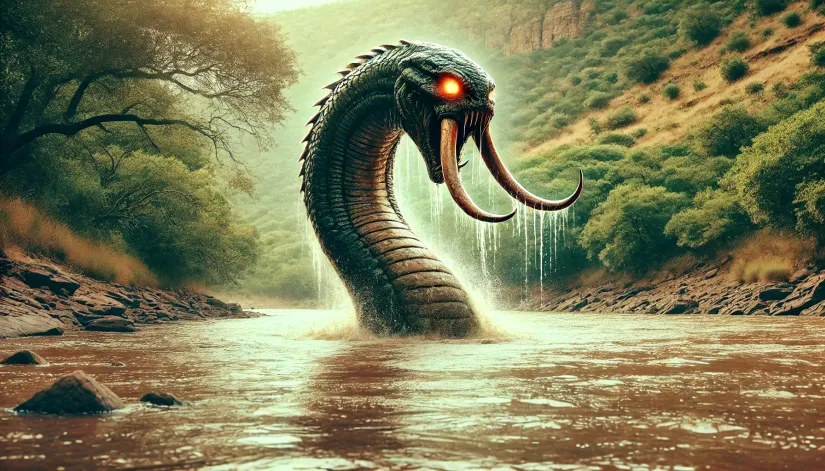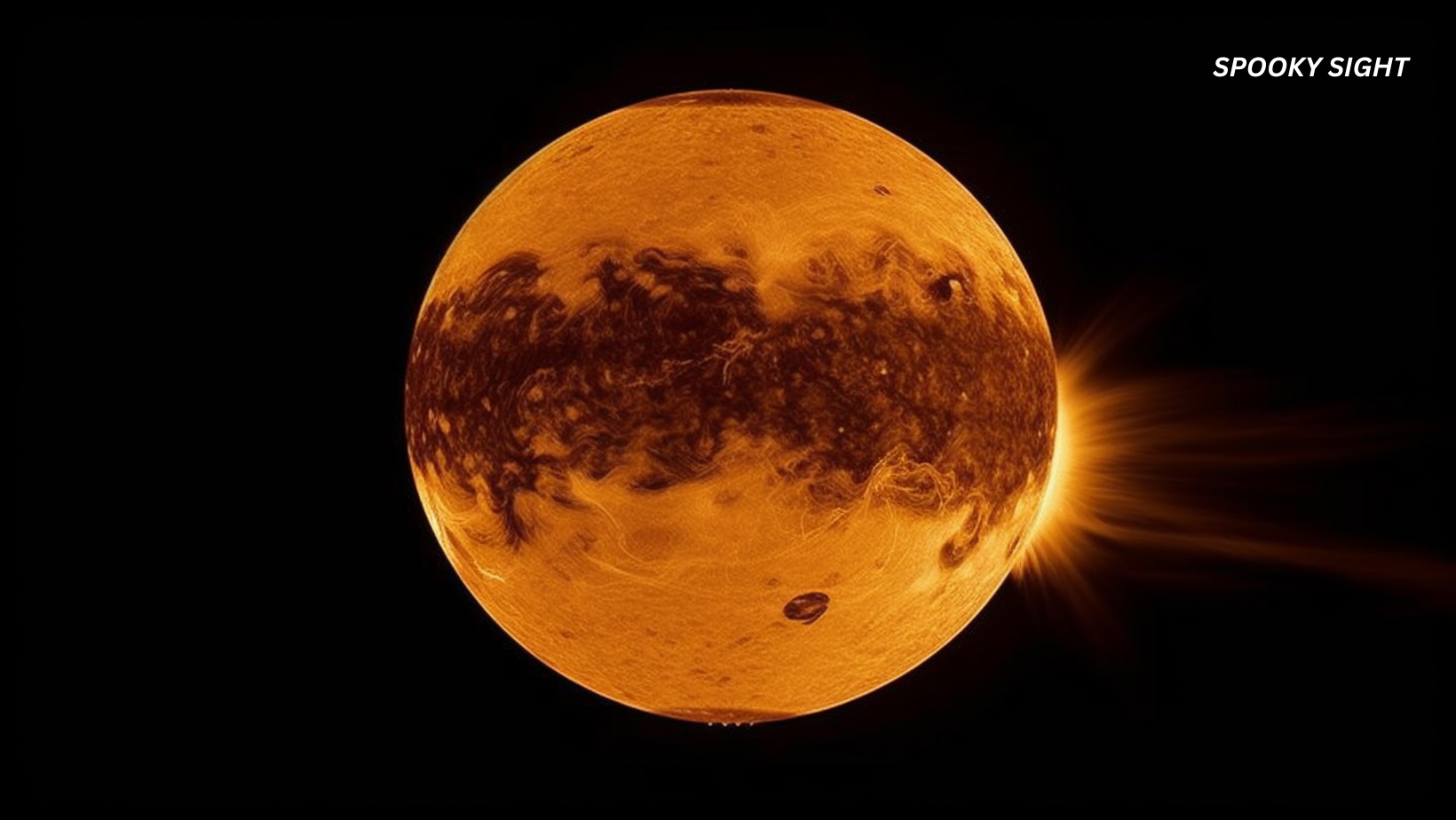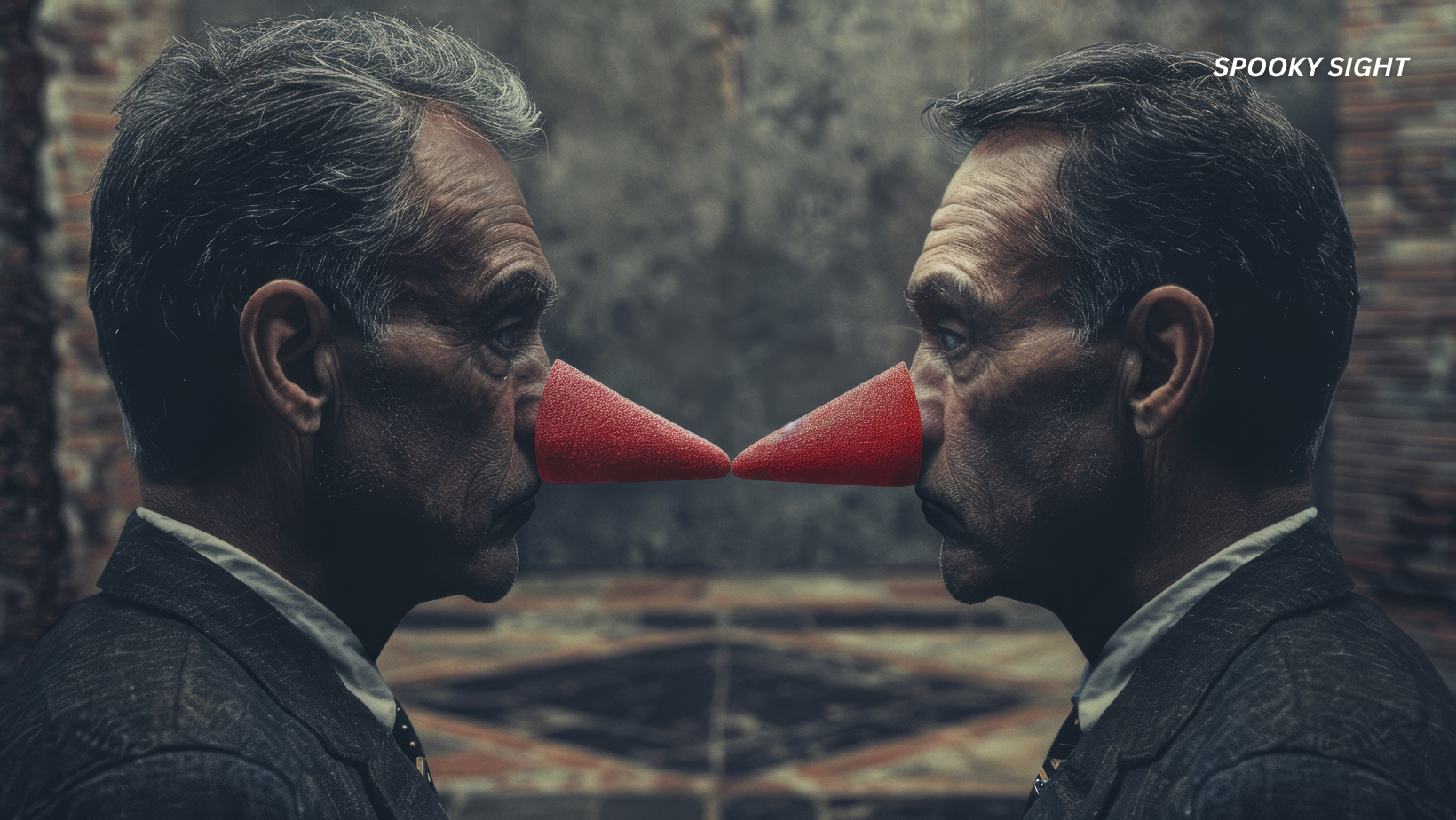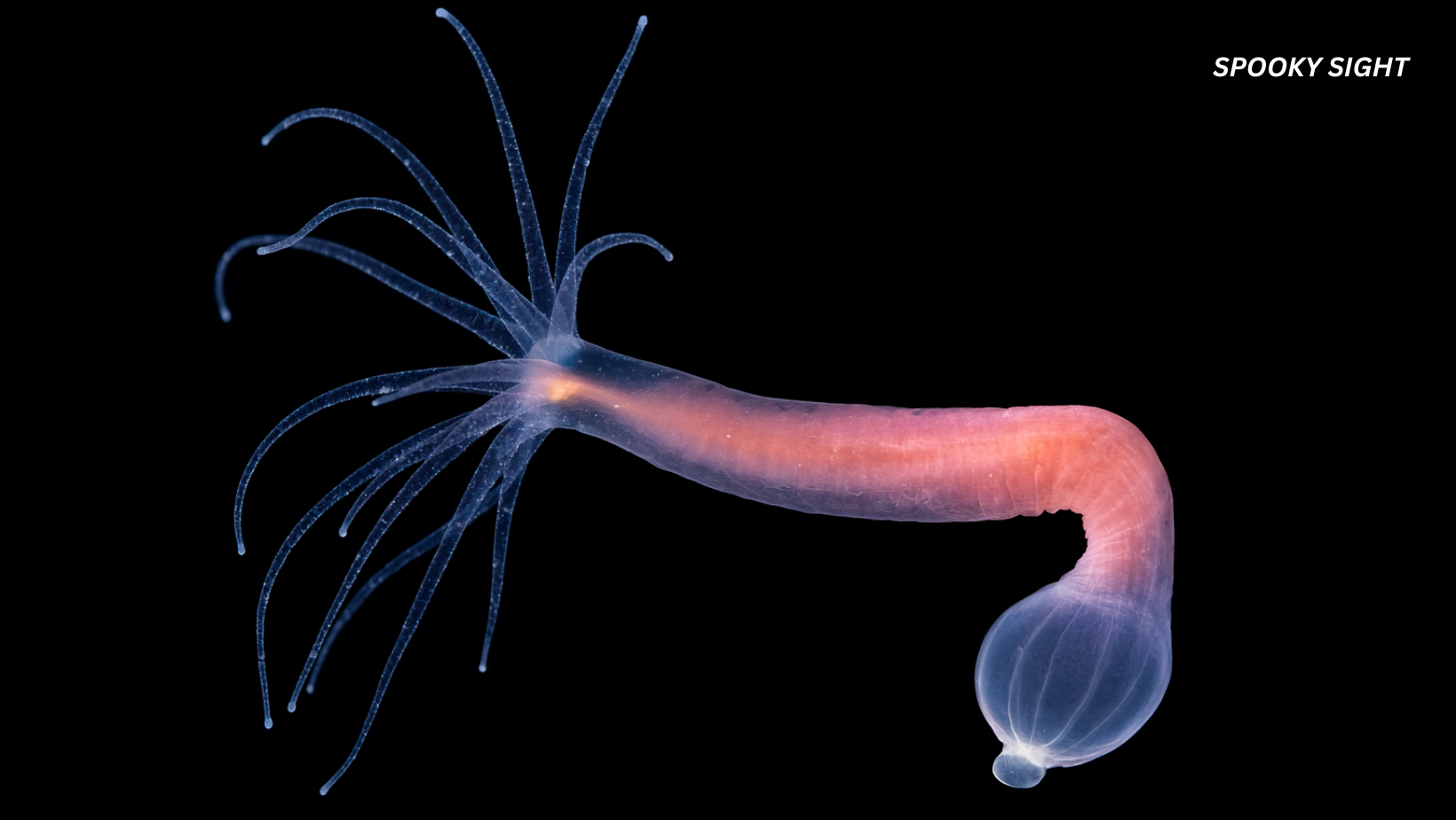The Grootslang (Afrikaans for “big snake”) is a mythical African cryptid said to live in the Richtersveld in the country’s far northwest. The creature appears to be a hybrid between an elephant and a python—with varying depictions of which part of the animal resembles what.
But how did such a powerful entity come to be, and what secrets do its lairs hold? And, could the Grootslang be more than just a myth?
In this article:
What is a Grootslang?
The Grootslang is a legendary creature from South African folklore, blending traits of an elephant and a serpent.
The myth originates from the Richtersveld region, where locals talk about a mysterious beast that possesses immense power and intelligence.
According to legend, the gods created the Grootslang as one of the first animals. Realizing their mistake in giving it too much power, they split it into two separate beings: elephants and snakes.
However, a few original Grootslangs escaped and are believed to still hide in deep caves filled with diamonds.

Historical and Cultural Significance
In the local culture, the Grootslang is more than just a monster; it’s a symbol of greed and untamed power—so powerful that it can easily lure elephants into its cave to devour them.
Grootslang in African Mythology
The Grootslang legend is profoundly ingrained in the folklore of various South African tribes—particularly the Khoekhoe and the Zulu. These tales have been passed down through generations, each adding its own twist to the story.
In Khoekhoe folklore, for instance, the monster is often portrayed as an ancient guardian of treasure, typically rooming in the “Wonder Hole” (or “Bottomless Pit”) in the Richtersveld.
Did You Know?
In Zulu mythology, there is a creature called the Inkanyamba, a giant, serpent-like beast with the head of a horse. It is believed to reside in deep pools and waterfalls, and its appearance is associated with violent storms and tornadoes.
According to these stories, the creature’s cave is filled with diamonds and precious gems, luring adventurers and prospectors to their doom.
The Khoekhoe believe that a deep, ominous booming sound marks the Grootslang’s presence, thought to be the creature’s warning to intruders.
The Zulu culture, on the other hand, has its own versions of the Grootslang myth.
Related: Is the Lizard Man of Scape Ore Swamp Real? Evidence and Sightings
They refer to the creature as “iGroot” (or “Indlovana”), most likely due to its hybrid nature of an elephant (indlovu) and a snake (inja).
But just like Khoekhoe legends, the Zulu also talk about its incredible strength and cunning, often depicting it as a nearly invincible entity that fiercely protects its hoard of treasures.
Some variations of the myth even include a female Grootslang and an offspring.
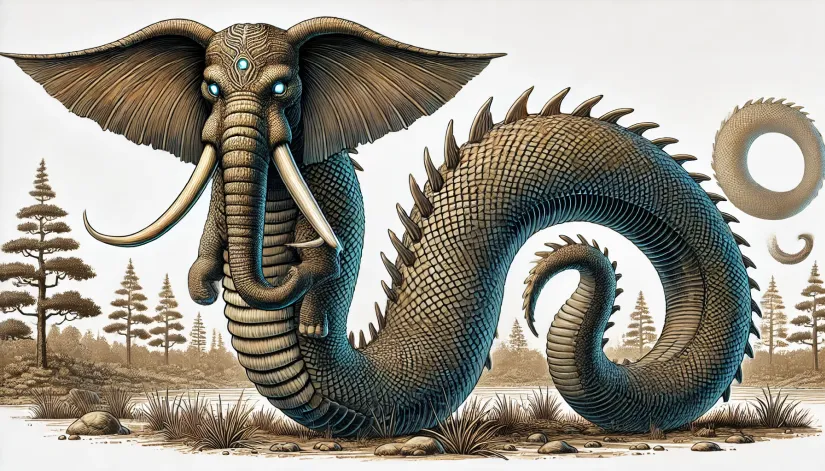
Symbolism
In African culture, the Grootslang symbolizes primal power, greed, and the hidden dangers of the natural world.
Its association with vast treasures and deadly cunning makes it a potent symbol of the perils of excessive greed and ambition.
The Grootslang’s dual nature as an elephant and a serpent can also likely be linked to balance in nature. It symbolizes how unchecked power can lead to chaos and destruction.
When comparing it to other mythical creatures worldwide, several parallels can be drawn.
Like the dragons of European folklore, which guard treasures and embody both wisdom and destruction, the Grootslang is a guardian of immense wealth and a symbol of uncontrollable natural forces.
Did You Know?
The Lindworm, a serpent-like dragon from European folklore, is often depicted without wings but with a pair of clawed limbs. It is said to guard treasures, much like the Grootslang, and its presence is believed to bring disease and death.
Similarly, the Nāga of Hindu and Buddhist mythology are serpent-like beings that can either protect or harm, depending on how they are treated.
The Grootslang’s symbolism also touches on the idea of hidden knowledge and the unknown.
Physical Description and Habitat
What Does the Grootslang Look Like?
The Grootslang is often described as an enormous serpent with the head and tusks of an elephant. This unique combination of features makes it one of African folklore’s most formidable and fearsome cryptids.
Its body is covered in impenetrable scales, which glisten ominously and provide it with incredible protection against any assailants.
In terms of size, the cryptid is described as being between 40 and 50 feet long, with some legends exaggerating its size to even more massive proportions.
Recommended reads:
- Top 14 Most Famous Werewolves in Mythology
- The Wolf of Ansbach: Werewolf Terror in 17th Century Bavaria?
- Did You Know? 25 Facts About Lizzie Borden: From Infamy to Isolation
- The Winchester Mystery House: History, Oddities & Terrifying Secrets
The creature’s head, featuring elephant-like characteristics—includes large tusks and potent jaws capable of crushing rocks and trees. Its eyes are often depicted as glowing, adding a supernatural element to its terrifying visage.
When compared to known animals, the Grootslang may actually share similarities with both pythons and elephants.
Like pythons, the Grootslang has a long, serpentine body that allows it to move swiftly and coil around its prey. Its immense strength and the presence of tusks align it with the formidable attributes of elephants.
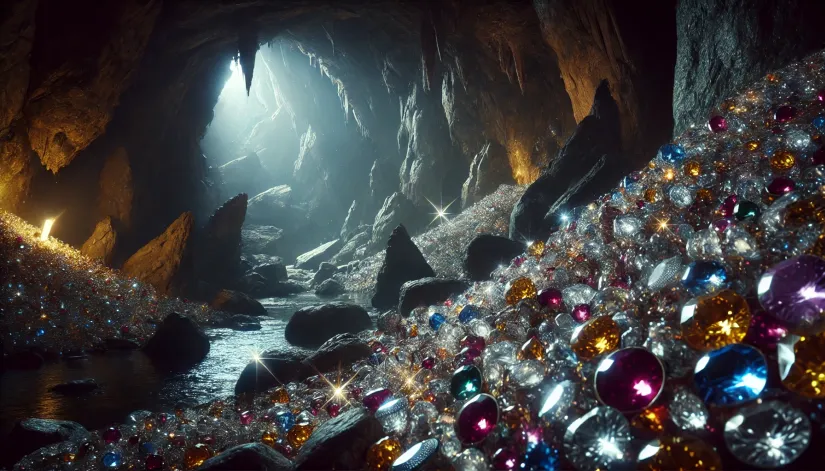
Habitat
As mentioned above, the Grootslang is primarily associated with the Richtersveld region of South Africa, a desolate and rugged area known for its harsh landscape and hidden caves.
One of the most famous locations tied to this African cryptid is the “Wonder Hole” or “Bottomless Pit.
This cave, believed to be filled with diamonds, is said to connect to the sea through an extensive underground network of tunnels.
Other rumored habitats include deep pools beneath the Augrabies Falls, where the Grootslang is thought to guard its treasure.
The creature is also linked to the Orange River, where local legends speak of a massive serpent that takes cattle from the riverbanks.
But regardless of the myths, all these regions share one characteristic: their remote and often inaccessible nature.
Alleged Grootslang Encounters and Sightings
Over the years, tales of the Grootslang have only grown, with many reported sightings adding to its legendary status.
The Disappearance of Peter Grayson
One of the most famous stories is from 1917, when British explorer and businessman Peter Grayson ventured into the Richtersveld region to hunt for diamonds. His expedition met a tragic end when lions attacked his team, and snakes bit others.
Grayson himself disappeared without a trace, sparking rumors that the Grootslang was responsible.
Only parts of his body were allegedly found near the entrance of the Wonder Hole, feeding the belief that the monstrous serpent had claimed another victim.
Another Bizarre Incident
Another gripping account involves a prospector who explored the “Wonder Hole” in the early 1900s. He described the cave as reeking of sulfur and having an eerie vibe.
As he ventured deeper, he saw large tunnels disappearing into the darkness. Suddenly, bats flew at him, causing him to drop his torch and flee.
Local Sightings Along the Orange River
Local farmers and villagers along the Orange River have also reported sightings of the Grootslang over the decades.
They describe it as a massive snake, far larger than any known species, sometimes with shimmering scales and glowing eyes.
In the 1940s, a farmer named Jacobus van der Merwe claimed he saw the creature while tending his livestock. He described it as over 40 feet long, with eyes that seemed to glow in the dark.
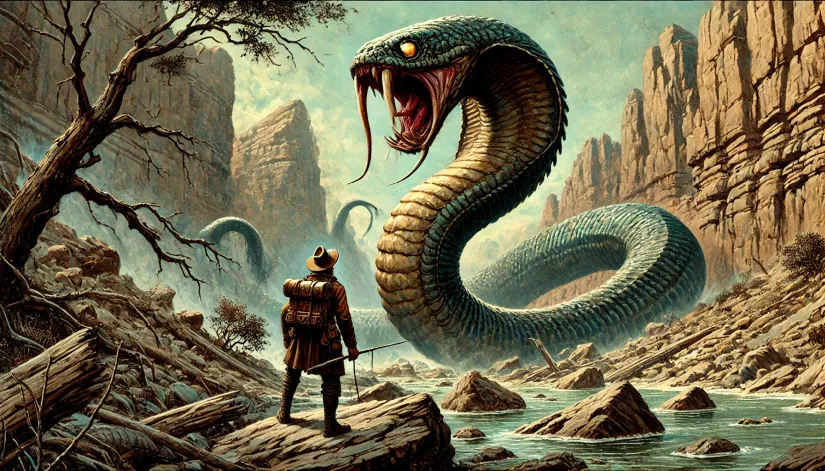
The 1963 Vaal Dam Reports
In 1963, a local newspaper in the Northern Cape province reported multiple sightings near the Vaal Dam.
Witnesses claimed they saw a creature with a serpent’s body and an elephant’s head. These sightings stirred up quite a frenzy, with locals convinced the Grootslang had emerged from its lair in search of food.
While some stories might be exaggerated or influenced by local myths, the consistency of specific details across various reports suggests the Grootslang legend is deeply rooted in the region’s culture.
Many sightings could be misidentified as giant pythons or other known animals. Still, the Grootslang’s supposed immense size and gemstone eyes keep its legend alive.
Scientific and Cryptozoological Perspectives
Scientific Theories and Possible Explanations
Scientists have proposed several theories to explain the origins and persistence of this strange legend.
One prominent hypothesis is that the Grootslang is a misidentified or exaggerated account of real animals, particularly large pythons native to the region.
African rock pythons (Python sebae) can grow up to 25 feet long, and their considerable size and strength could easily inspire tales of monstrous serpents.
Related: What is the Marozi, Kenya’s Legendary Spotted Lion?
Another scientific explanation suggests that the legend could be rooted in fossil discoveries or ancient sightings of now-extinct megafauna.
Large reptile and mammalian species coexisted during prehistoric times, and their fossilized remains could have fueled myths of giant hybrid creatures.
Expeditions Looking for the Grootslang
Cryptozoologists have long been fascinated by the Grootslang, dedicating significant efforts to uncover evidence of its existence. These researchers often combine field expeditions with local folklore to locate potential habitats and gather eyewitness accounts.
Modern expeditions have utilized advanced technology, such as ground-penetrating radar and remote cameras, to explore the vast cave systems in the Richtersveld.
These efforts aim to find physical evidence of the Grootslang or at least uncover more about the cave’s mysterious features.
For example, a recent expedition documented on YouTube showed explorers descending into the “Wonder Hole,” revealing its complex and extensive tunnel network.
Clossing Words: Is Grootslang Real?
While many believe that Grootslang is simply a myth, there have been witnesses who have reported seeing the snake on multiple occasions.
In all these cases, descriptions from these witnesses have been surprisingly consistent.
That said, because sightings of Grootlsang have been reported in remote areas with limited access to resources, it makes it difficult to verify these accounts.
Frequently Asked Questions
What is the Grootslang’s origin?
The Grootslang is believed to be one of the first creatures created by the gods. It combines the strength of an elephant with the cunning of a serpent. According to legend, the gods later split it into separate beings. Still, some original creatures escaped and lived in hidden South African caves.
Are there any modern sightings of the Grootslang?
Yes, numerous modern sightings have been reported by locals and explorers, often describing a massive serpent-like creature in the Richtersveld region or near the Orange River. However, these accounts are mostly anecdotal and lack concrete evidence.
What does the Grootslang symbolize?
In African culture, the Grootslang symbolizes primal power, greed, and the hidden dangers of the natural world.
How does the Grootslang compare to other mythical creatures?
This African cryptid is similar to other mythical creatures worldwide, such as dragons in European folklore or Nāga in Hindu and Buddhist traditions. These creatures often guard treasures and embody powerful natural forces, highlighting common themes of power, greed, and mystery in global myths.
Where is the Grootslang said to live?
The Grootslang is primarily associated with the Richtersveld region in South Africa. Specific locations include the “Wonder Hole” or “Bottomless Pit” and deep pools beneath the Augrabies Falls. These areas are characterized by their remote and rugged nature.
What are the scientific theories about the Grootslang?
Scientific theories suggest that the Grootslang legend may be based on sightings of large pythons or other big animals native to the region. Fossil discoveries and ancient megafauna might also have inspired these myths.
Has any physical evidence of the Grootslang been found?
To date, no physical evidence has definitively proven the existence of this African cryptid. Most accounts rely on eyewitness testimonies and local folklore, making it challenging to scientifically substantiate the creature’s existence.
What does the Grootslang eat?
According to legend, the Grootslang primarily preys on elephants, luring them into its cave where it devours them. Additionally, it is said to feed on trespassers or adventurers who venture too close to its lair, reinforcing its fearsome reputation as a guardian of hidden treasures.
What does a Grootslang look like?
The Grootslang is described as an enormous creature with the head and tusks of an elephant and the body of a serpent. It possesses large, glowing eyes and impenetrable scales, combining the formidable features of both elephants and serpents. Some accounts also describe it as having a forked tongue and venomous fangs, adding to its terrifying appearance.
What is Grootslang’s weakness?
While legends primarily focus on the Grootslang’s strengths and fearsome attributes, they also hint at specific vulnerabilities. Some stories suggest that the creature can be outwitted or appeased through offerings, particularly of precious gems or diamonds, which it is said to covet. This suggests that greed might also be its downfall.

